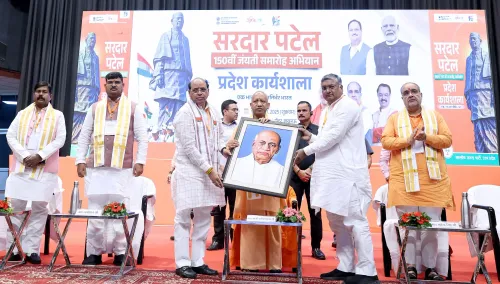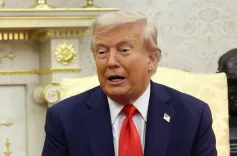Is the Government Ready to Launch Semiconductor Mission 2.0?
Synopsis
Key Takeaways
- The Indian government is launching Semiconductor Mission 2.0.
- Nearly $30 billion in fiscal support is expected.
- India produces around 1.1 million STEM graduates per year.
- Significant investments in the semiconductor sector are underway.
- PM Modi emphasizes India's pivotal role in the global chip market.
New Delhi, Sep 2 (NationPress) The Indian government is gearing up to introduce the second phase of the India Semiconductor Mission (ISM), as nearly all financial support from the initial phase has been allocated, stated Electronics and IT Secretary S. Krishnan on Tuesday.
During his address at Semicon India 2025 in New Delhi, Krishnan highlighted that funding for ISM 1.0 was predominantly committed, with only a few remaining projects in the finalization stage.
"We are in the concluding phases of preparing ISM 2.0, which will soon be made public," he remarked.
Both the Central and state governments are expected to offer approximately $30 billion in fiscal support to strengthen the semiconductor sector, according to the Secretary.
He pointed out India’s strengths, mentioning that the country produces around 1.1 million STEM graduates annually and employs over 20% of the world's semiconductor design engineers.
Moreover, he highlighted the rapid expansion of the mobile phone industry and the increasing relevance of chips in space and defense as compelling reasons for international investors to engage with India.
In a related event, Prime Minister Narendra Modi inaugurated ‘Semicon India 2025’ and emphasized that the world now has confidence in India, expressing readiness to co-create the future of the semiconductor industry, with the government poised to unveil the next wave of reforms in the semiconductor domain.
PM Modi emphasized India’s escalating position in the global chip market, asserting that the country is on track to play a crucial role in the trillion-dollar semiconductor sector.
"Since 2021, investments of $18 billion are being directed towards 10 semiconductor projects that have received approval," he stated.
"The world trusts India, believes in India, and is prepared to collaborate in building the future of semiconductors in India," the Prime Minister remarked, adding that while the last century was defined by oil, the future will be defined by chips.
The Prime Minister observed that the global semiconductor market, currently valued at $600 billion, is set to surpass the $1 trillion threshold, with India poised to be a significant player.








